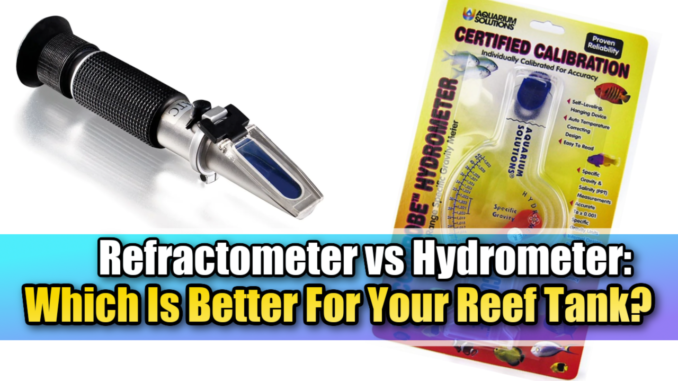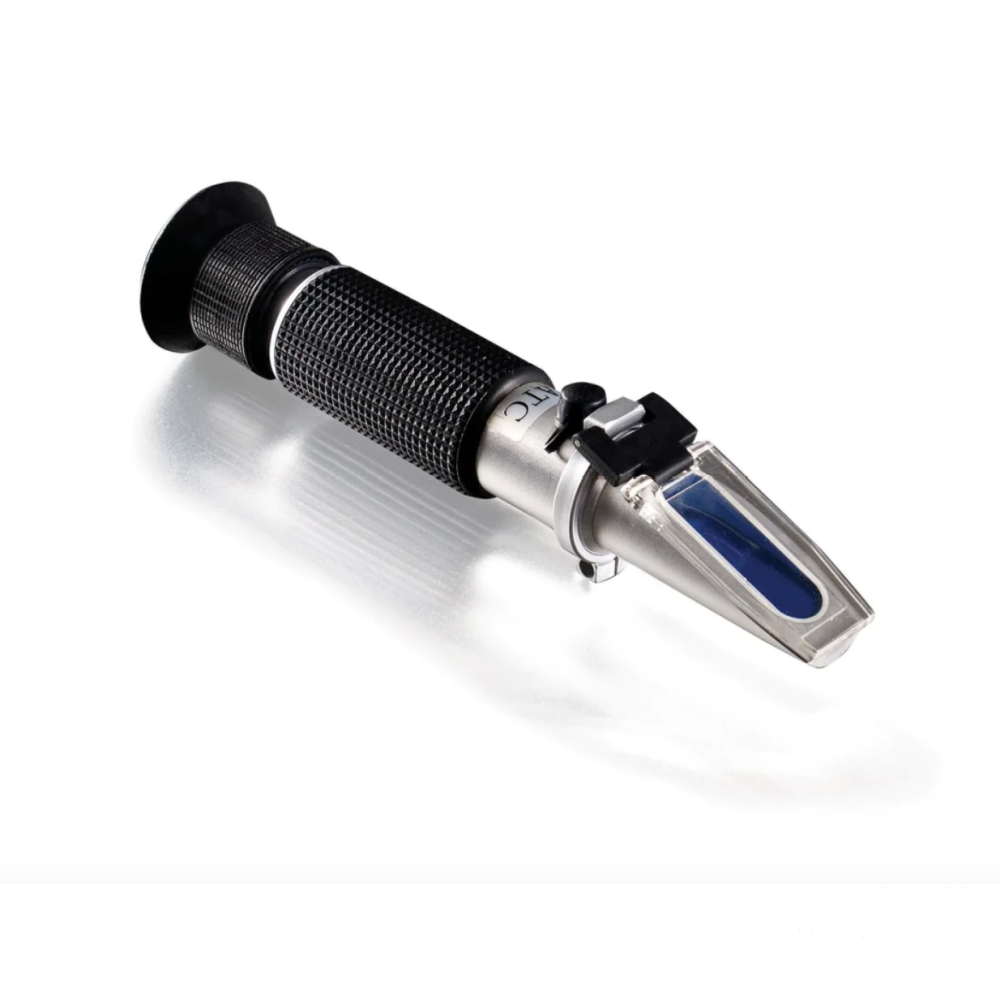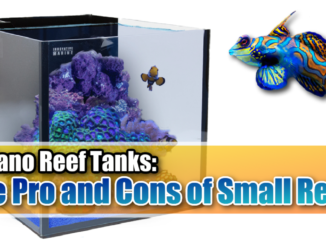
When it comes to reef tanks, both hydrometers and refractometers play crucial roles in measuring salinity for maintaining the optimal conditions in your reef tank. Let’s delve into the specifics of each tool and how they apply to the complex world of reef tank management.
Hydrometer:
- Principle: In the realm of reef tanks, a hydrometer operates by gauging the buoyancy of a liquid. Its design typically involves a weighted glass float with a graduated scale. The hydrometer’s position in the water is influenced by the density of the liquid it’s immersed in.
- Use: Reef hobbyists commonly employ hydrometers to measure the specific gravity of aquarium water. By directly submerging the hydrometer into the tank, enthusiasts can assess the specific gravity by observing where the liquid intersects the graduated scale.
- Advantages: Straightforward and easy to use. Provides quick readings, making it suitable for regular monitoring.
Disadvantage of Hydrometers For Your Reef Tank
One disadvantage of using a hydrometer in a reef tank is that it may be more susceptible to temperature variations. The accuracy of hydrometers is influenced by temperature, and reef tank conditions can sometimes experience fluctuations in temperature.
Changes in temperature can affect the density of the water, leading to potential inaccuracies in specific gravity measurements obtained using a hydrometer. This can be particularly significant in reef tank environments where precise control of salinity is crucial for the well-being of your reef tank’s livestock.
the biggest disadvantage of the hydrometer is that it can not be calibrated.
Refractometer:
- Principle: On the other hand, a refractometer utilized in reef tanks measures the light-bending properties of a liquid. The degree of light refraction is indicative of the concentration of dissolved solids in the water.
- Use: Particularly valuable in reef tank setups, refractometers are often employed to measure salinity levels. A small sample of the tank water is placed on the refractometer’s glass plate, and the bending of light passing through the liquid provides a precise measurement.
- Advantages: Requires only a small water sample. Generally offers higher accuracy, especially when assessing salinity levels. Versatile, suitable for various liquid measurements in reef tank environments.
Disadvantage of Refractometers For Your Reef Tank
While refractometers are generally reliable tools for measuring salinity in reef tanks, they do have a potential disadvantage related to their sensitivity to impurities and residue. If the refractometer’s glass surface is not cleaned thoroughly between uses or if there are residues from previous samples, it can lead to inaccurate readings.
Impurities on the glass surface can affect the way light passes through the liquid sample, causing a refractometer to provide false readings. This is particularly important in the sensitive and precise environment of a reef tank, where accurate salinity measurements are crucial for the health of marine organisms.
To mitigate this disadvantage, reef tank enthusiasts using refractometers need to ensure regular and thorough cleaning of the refractometer’s glass plates between each use to prevent any residue or impurities from influencing the accuracy of salinity readings.
Refractometer vs Hydrometer Comparison:
- Sample Size: Hydrometers necessitate a larger water sample, while refractometers excel with smaller samples.
- Accuracy: Refractometers are generally considered more accurate because they can be calibrated with calibration fluid. This is crucial for precise monitoring of salinity levels in reef tanks.
- Ease of Use: Hydrometers are simpler and offer quick readings, but refractometers provide efficiency when dealing with small, critical water samples in reef tank environments.
In summary, both hydrometers and refractometers are indispensable tools for reef tank enthusiasts. While hydrometers offer simplicity and speed, refractometers shine in accuracy and versatility, particularly when dealing with the delicate balance of salinity in reef tank ecosystems.





